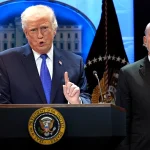Parliament has officially passed the Electronic Transfer Levy Repeal Bill 2025, effectively scrapping the controversial E-Levy, which imposed taxes on electronic financial transactions in Ghana.
This marks a major step towards a total cancellation of the tax.
The bill now awaits President John Mahama’s assent.
The E-Levy, introduced in 2022 by the previous NPP administration, imposed a 1% tax on electronic transactions, including mobile money transfers, bank transfers, and online payments.
While supporters argued it was a vital revenue stream for infrastructure development, the levy faced intense public backlash, protests, and criticism for disproportionately impacting low-income earners and digital transactions.
The abolition of the tax fulfils a key campaign promise by President Mahama and the NDC, who pledged to remove it if elected in the December 2024 elections.
During parliamentary debates on the repeal bill, Deputy Finance Minister Thomas Nyarko Ampem highlighted the financial relief the move would bring to Ghanaians.
He stated that the abolishment of the E-Levy will effectively return GH¢2 billion to the people, helping to ease financial pressures and improve livelihoods.
When the motion was put to a vote in Parliament, it passed without a single dissenting voice.
With overwhelming public support for its removal, the bill’s final fate now rests with President Mahama’s approval.
















